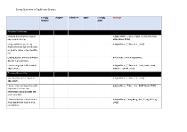| dc.contributor.author | Akdur, Görkem | |
| dc.contributor.author | Aydın, Mehmet Nafiz | |
| dc.contributor.author | Akdur, Gizdem | |
| dc.date.accessioned | 2020-11-30T12:16:39Z | |
| dc.date.available | 2020-11-30T12:16:39Z | |
| dc.date.issued | 2020 | |
| dc.identifier.issn | 2291-5222 | en_US |
| dc.identifier.uri | https://hdl.handle.net/20.500.12469/3486 | |
| dc.identifier.uri | https://doi.org/10.2196/16911 | |
| dc.description.abstract | Background: Dietetics mobile health apps provide lifestyle tracking and support on demand. Mobile health has become a new trend for health service providers through which they have been shifting their services from clinical consultations to online apps. These apps usually offer basic features at no cost and charge a premium for advanced features. Although diet apps are now more common and have a larger user base, in general, there is a gap in literature addressing why users intend to use diet apps. We used Diyetkolik, Turkey's most widely used online dietetics platform for 7 years, as a case study to understand the behavioral intentions of users.
Objective: The aim of this study was to investigate the factors that influence the behavioral intentions of users to adopt and use mobile health apps. We used the Technology Acceptance Model and extended it by exploring other factors such as price-value, perceived risk, and trust factors in order to assess the technology acceptance of users.
Methods: We conducted quantitative research on the Diyetkolik app users by using random sampling. Valid data samples gathered from 658 app users were analyzed statistically by applying structural equation modeling. Results: Statistical findings suggested that perceived usefulness (P<.001), perceived ease of use (P<.001), trust (P<.001), and price-value (P<.001) had significant relationships with behavioral intention to use. However, no relationship between perceived risk and behavioral intention was found (P=.99). Additionally, there was no statistical significance for age (P=.09), gender (P=.98), or previous app use experience (P=.14) on the intention to use the app.
Conclusions: This research is an invaluable addition to Technology Acceptance Model literature. The results indicated that 2 external factors (trust and price-value) in addition to Technology Acceptance Model factors showed statistical relevance with behavioral intention to use and improved our understanding of user acceptance of a mobile health app. The third external factor (perceived risk) did not show any statistical relevance regarding behavioral intention to use. Most users of the Diyetkolik dietetics app were hesitant in purchasing dietitian services online. Users should be frequently reassured about the security of the platform and the authenticity of the platform's dietitians to ensure that users' interactions with the dietitians are based on trust for the platform and the brand. | en_US |
| dc.language.iso | eng | en_US |
| dc.publisher | Jmır Publıcatıons, Inc, 130 Queens Quay E | en_US |
| dc.rights | info:eu-repo/semantics/openAccess | en_US |
| dc.subject | MHealth | en_US |
| dc.subject | Technology acceptance | en_US |
| dc.subject | User acceptance | en_US |
| dc.subject | Mobile apps | en_US |
| dc.subject | Diet apps | en_US |
| dc.subject | Technology Acceptance Model | en_US |
| dc.subject | TAM | en_US |
| dc.subject | Dietetics | en_US |
| dc.title | Adoption of Mobile Health Apps in Dietetic Practice: Case Study of Diyetkolik | en_US |
| dc.type | article | en_US |
| dc.relation.journal | Jmır Mhealth and Uhealth | en_US |
| dc.identifier.issue | 10 | en_US |
| dc.identifier.volume | 8 | en_US |
| dc.department | Fakülteler, İşletme Fakültesi, Yönetim Bilişim Sistemleri Bölümü | en_US |
| dc.identifier.wos | WOS:000579120300001 | en_US |
| dc.identifier.doi | 10.2196/16911 | en_US |
| dc.identifier.scopus | 2-s2.0-85092618131 | en_US |
| dc.institutionauthor | Akdur, Görkem | en_US |
| dc.institutionauthor | Aydın, Mehmet Nafiz | en_US |
| dc.relation.publicationcategory | Makale - Uluslararası Hakemli Dergi - Kurum Öğretim Elemanı | en_US |
| dc.identifier.pmid | 33006566 | en_US |
















